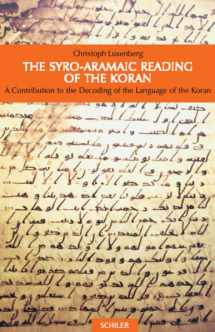
The Syro-Aramaic Reading of the Koran: A Contribution to the Decoding of the Language of the Koran
Book details
Summary
Description
Throughout its history the Koran has presented problems of interpretation. Some scholars estimate that at least a quarter of the text is obscure in meaning, not only for Western translators but even native Arabic speakers, who struggle with the archaic vocabulary that is no longer used in modern Arabic.
In this in-depth study of the language of the Koran, scholar Christoph Luxenberg dispels much of the mystery surrounding numerous hitherto unclear passages. The key, as Luxenberg shows exhaustively, is to understand that Aramaic--the language of most Middle Eastern Jews and Christians of the pre-Islamic era--had a pervasive influence on the development of the Arabic text of the Koran. For a thousand years preceding the advent of Islam, Aramaic (or Syriac as it was sometimes called) was the lingua franca of many parts of the Near East. It was the native language of the first Christian evangelists and the main liturgical language of the early Christian churches from Syria to Iran.
Based on this historical context and a profound knowledge of Semitic languages, Luxenberg clarifies many thorny textual puzzles. Perhaps his most interesting argument is that the passage often translated as referring to the "virgins" that are believed to greet the departed faithful in paradise was long ago misunderstood. In fact, knowledge of ancient Christian hymns in Aramaic suggests that the word in question refers to "grapes" that the departed will enjoy in a paradisiacal garden. Luxenberg discusses many other similar fascinating instances where Aramaic vocabulary and concepts influenced the text of the Koran
This highly erudite work makes a significant contribution to the study of the Koran and the history of Islamic origins.


We would LOVE it if you could help us and other readers by reviewing the book
Book review



